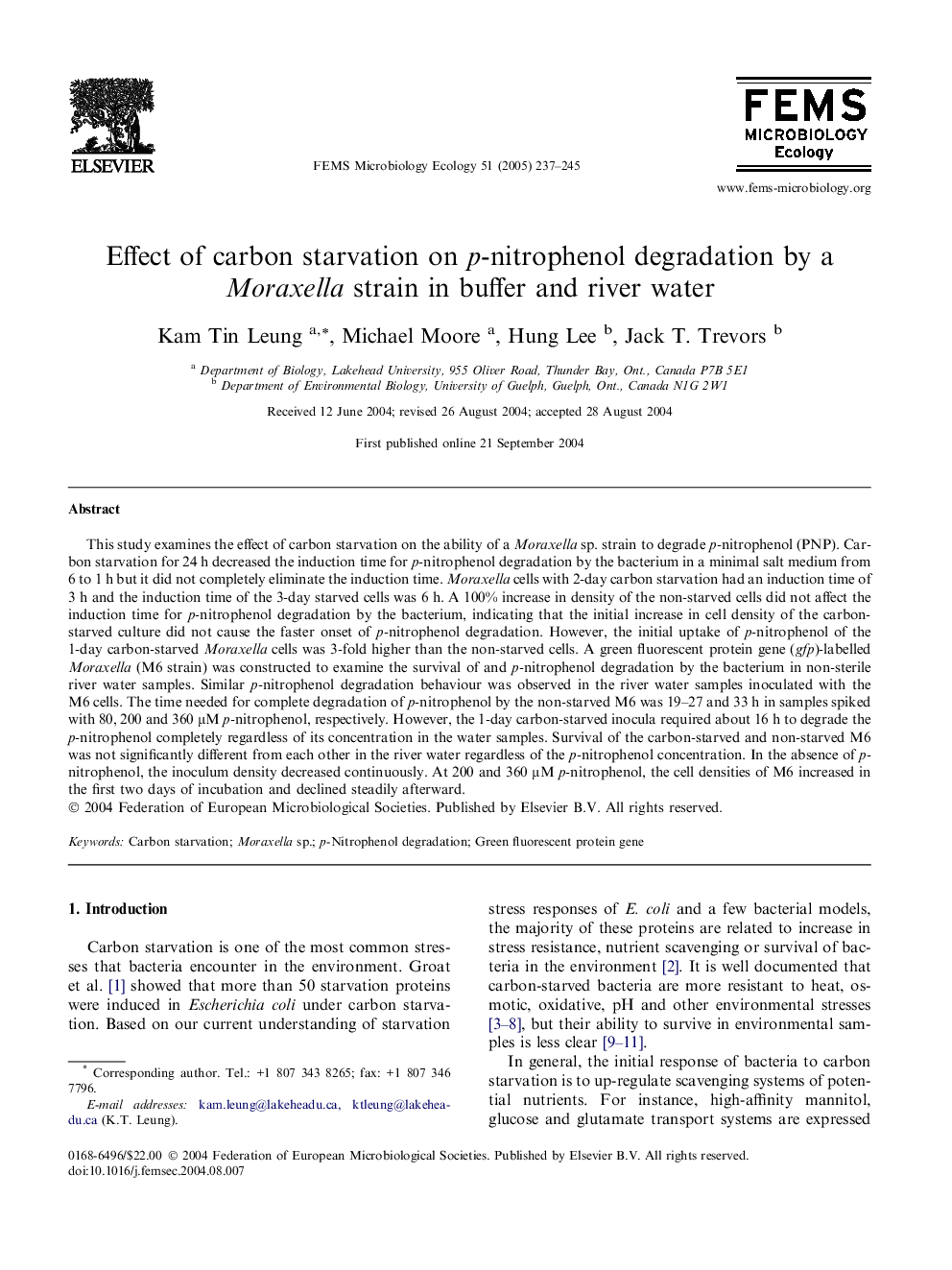| Article ID | Journal | Published Year | Pages | File Type |
|---|---|---|---|---|
| 9437771 | FEMS Microbiology Ecology | 2005 | 9 Pages |
Abstract
This study examines the effect of carbon starvation on the ability of a Moraxella sp. strain to degrade p-nitrophenol (PNP). Carbon starvation for 24 h decreased the induction time for p-nitrophenol degradation by the bacterium in a minimal salt medium from 6 to 1 h but it did not completely eliminate the induction time. Moraxella cells with 2-day carbon starvation had an induction time of 3 h and the induction time of the 3-day starved cells was 6 h. A 100% increase in density of the non-starved cells did not affect the induction time for p-nitrophenol degradation by the bacterium, indicating that the initial increase in cell density of the carbon-starved culture did not cause the faster onset of p-nitrophenol degradation. However, the initial uptake of p-nitrophenol of the 1-day carbon-starved Moraxella cells was 3-fold higher than the non-starved cells. A green fluorescent protein gene (gfp)-labelled Moraxella (M6 strain) was constructed to examine the survival of and p-nitrophenol degradation by the bacterium in non-sterile river water samples. Similar p-nitrophenol degradation behaviour was observed in the river water samples inoculated with the M6 cells. The time needed for complete degradation of p-nitrophenol by the non-starved M6 was 19-27 and 33 h in samples spiked with 80, 200 and 360 μM p-nitrophenol, respectively. However, the 1-day carbon-starved inocula required about 16 h to degrade the p-nitrophenol completely regardless of its concentration in the water samples. Survival of the carbon-starved and non-starved M6 was not significantly different from each other in the river water regardless of the p-nitrophenol concentration. In the absence of p-nitrophenol, the inoculum density decreased continuously. At 200 and 360 μM p-nitrophenol, the cell densities of M6 increased in the first two days of incubation and declined steadily afterward.
Related Topics
Life Sciences
Environmental Science
Ecology
Authors
Kam Tin Leung, Michael Moore, Hung Lee, Jack T. Trevors,
